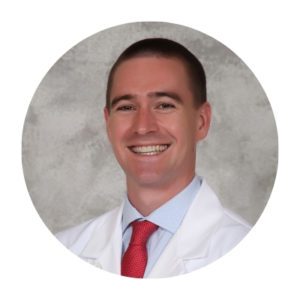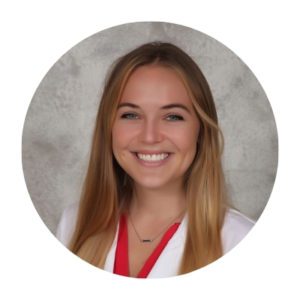Abigail Meckley and Michael Lowe
Point-of-care ultrasound (POCUS) is a tool that arguably any practicing physician can use. However, not all are trained to use this medical jack-of-all-trades. Medical schools are catching up on incorporating ultrasound into their curriculum, leaving many students with minimal exposure to hands-on POCUS experience during their didactic and clinical years. Providing medical students with POCUS education is undoubtedly beneficial for the student physician as well as their future patients. Here’s why:
1. Develop a Valuable Clinical Skill Prior to Residency
POCUS is a skill that empowers students and helps build confidence as a developing physician. It provides the opportunity to lay a foundation in ultrasound that can be continued during residency and beyond. Learning ultrasound early on allows students to reach proficiency sooner, therefore benefiting more patients. During these early years of training, students can discover their passions through practice and exploration with ultrasound.
As a multifunctional tool used for diagnosis, procedural aid, and therapeutic treatments, ultrasound should only be placed in the hands of an experienced provider. Introducing medical students to POCUS will produce more capable physicians ready to deliver excellence in ultrasound and elevate patient care.
2. Leadership and Teaching Opportunities
The professional development possibilities are bountiful when it comes to POCUS involvement for medical students. By holding leadership positions and hosting ultrasound club events, students have the chance to improve their resumes in a meaningful, applicable way by guiding and teaching peers. Students can increase their involvement in local and national conferences by interacting and even teaching ultrasound workshops.
Through the POCUS Certification Academy™, medical students can prove their competency to gain a POCUS fundamentals certificate as well as attend events, volunteer, apply for scholarships, and participate in countless other skill building opportunities.
3. Solidify Anatomy Knowledge Through Hands-On Application
Learning human anatomy is the core of any medical education and can be taught in several ways—textbook, cadaver lab, virtually, and many other modalities. However, applying this learned knowledge can be difficult as medical students often do not see patients regularly during didactic education. Even then, patients do not always have a “textbook” presentation. POCUS not only provides the opportunity to see real-life anatomy instantaneously, but it also allows students to apply what they are learning through practice with an imaging modality that they will then utilize in future clinical settings.
4. A Ubiquitous Influence in Medicine
Medical students’ interests do not need to be limited to the specialties of radiology or obstetrics to benefit from POCUS education. The versatility of ultrasound allows it to be used across all medical disciplines and by an array of healthcare professionals. Whether it be performing a focused assessment with sonography in trauma (FAST) exam in the emergency department or doing an ultrasound guided injection in an orthopedic clinic, the skill of a medical student with this tool will not go unnoticed. POCUS transcends specialties, roles in patient care, and places of use. POCUS benefits patients with early diagnostics, improved safety of procedures, and more reliable patient education. It can be applied in a rural Guatemalan village or at the bedside of a family medicine clinic. Ultrasound has no limits to its reach or usability.
5. Portable and Practical
Ultrasound has been called the stethoscope of the future. Bedside ultrasound is non-invasive, uses non-ionizing radiation, is safe, less expensive than other imaging modalities, and is a painless diagnostic tool that has gained popularity amongst practicing clinicians over the past few decades. With the introduction of portable ultrasound machines, access to this technology is global. With its increased portability, rural clinics and developing countries now have access to a diagnostic modality that changes the management of patients. As the technology behind ultrasound continues to grow, students coming through the medical education system must become educated and competent in its use.
The reasons why POCUS should be a staple in every medical school’s curriculum do not end with this shortlist. As ultrasound becomes increasingly available across a wide spectrum of specialties and clinical settings, it is more paramount than ever that students familiarize themselves with this tool early on in their medical education. POCUS will only continue to grow towards becoming a commonplace, routine tool in medicine. Let’s get future physicians involved and educated in POCUS to improve the standard of care for patients.
Learn more about how you can help do so at the POCUS Certification Academy’s website.
About the Authors
 Michael Lowe is a fourth-year medical student at Rocky Vista University College of Osteopathic Medicine in Colorado. He grew up in Ventura, California, and graduated from San Diego State University with a Bachelor of Science in Kinesiology. Before medical school, Michael worked as an ambulance-based emergency medical technician, an emergency medicine scribe, and an EMT skills instructor. His dream is to become an emergency medicine physician and he is preparing to apply for residency programs during this upcoming cycle. His interests include running, snowboarding, surfing, and watching football (go Rams).
Michael Lowe is a fourth-year medical student at Rocky Vista University College of Osteopathic Medicine in Colorado. He grew up in Ventura, California, and graduated from San Diego State University with a Bachelor of Science in Kinesiology. Before medical school, Michael worked as an ambulance-based emergency medical technician, an emergency medicine scribe, and an EMT skills instructor. His dream is to become an emergency medicine physician and he is preparing to apply for residency programs during this upcoming cycle. His interests include running, snowboarding, surfing, and watching football (go Rams).
 Abigail Meckley is a fourth-year medical student at Rocky Vista University College of Osteopathic Medicine in Colorado. Abigail grew up in Tampa, Florida, and completed her undergraduate studies in Health Science at the University of Florida. Her first encounter with ultrasound occurred while working as a medical assistant for Dr. Christopher Pittman, an interventional radiologist, who opened a practice in venous and lymphatic medicine. Her passion for ultrasound has been furthered in medical school through the ultrasound curriculum. Abigail is planning to apply for a dermatology residency and excited to use ultrasound to better diagnose and treat her future patients! In her free time, Abigail enjoys hiking, playing soccer, skiing, and time with friends and family.
Abigail Meckley is a fourth-year medical student at Rocky Vista University College of Osteopathic Medicine in Colorado. Abigail grew up in Tampa, Florida, and completed her undergraduate studies in Health Science at the University of Florida. Her first encounter with ultrasound occurred while working as a medical assistant for Dr. Christopher Pittman, an interventional radiologist, who opened a practice in venous and lymphatic medicine. Her passion for ultrasound has been furthered in medical school through the ultrasound curriculum. Abigail is planning to apply for a dermatology residency and excited to use ultrasound to better diagnose and treat her future patients! In her free time, Abigail enjoys hiking, playing soccer, skiing, and time with friends and family.





















